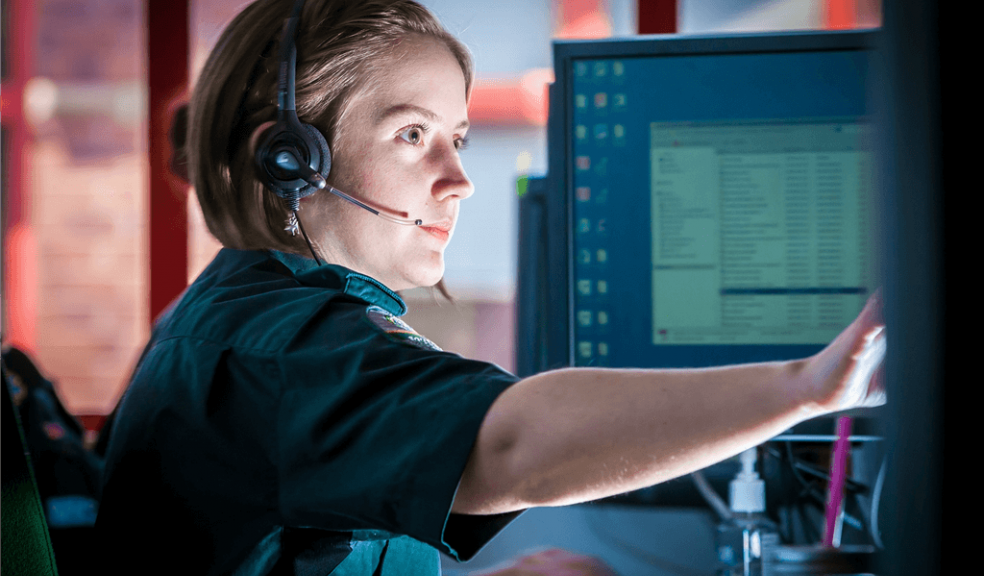
Emergency services unite to tackle #unacceptable abuse on staff
Emergency services from across the South West are working together to highlight the unacceptable rise of violence and abuse towards their 999 Emergency Control hub staff, with the continuation of the #Unacceptable campaign.
With Easter being one of the busiest times of the year for emergency staff, the services are expecting a sharp increase in incident calls over the holiday period with many extra visitors to the region.
Police, ambulance, fire and healthcare staff are regularly subjected to attacks including serious injury, verbal abuse, spitting and biting, and even sexual assault from those they are trying to help.
It’s not just the frontline paramedic teams that face the violence, 999 Control hub staff are finding that they are increasingly subjected to abuse when taking emergency calls. In some cases emergency call handlers have had abusive rants with death threats to them and their families, and these are innocent staff who are trying to get emergency care to patients.
Natalie is an Emergency Call Handler in the Bristol 999 Control hub, she says her abuser has since been taken to court, fined and she has received compensation for her experience.
“I am pleased this case went to court and wanted to highlight the problem we face in the 999 Control hubs, it is unacceptable to treat Emergency staff in this way. It is so frustrating for us in the Control hub as we are trying to triage and assess the patient over the phone with questions but sometimes we can’t even get an address out of the caller and if they start to rant and get personal with their threats and swearing.”
Ken Wenman, of Chief Executive SWASFT, said: “Like all our emergency services colleagues, our crews and control staff work in extremely difficult circumstances and are often under threat of attack or abuse. This is totally unacceptable and we will take whatever action is necessary to ensure that our staff are protected and those responsible for such attacks are prosecuted.
“We are very proud to be part of this important ongoing campaign and hope that together we can make a significant impact in reducing the number of assaults and abuse on our staff so that they can continue to provide an excellent service to the public without fear of attack or abuse.”
Assistant Chief Constable Paul Davies on behalf of Devon & Cornwall Police and Dorset Police said: “It’s not just frontline paramedic teams and police officers who face violence, 999 Control hub staff are finding that they are increasingly subjected to abuse when taking emergency calls. In some cases emergency call handlers have had death threats to them and their family and these are innocent staff who are trying to get emergency care to patients.
Our officers and staff, along with other emergency services colleagues, demonstrate commitment, courage and dedication on a daily basis. They signed up to helping and protecting the public, not coming into work each day with the risk of being assaulted. The impact this can have on them, their colleagues and their families can have lasting effects long after physical scars have healed.
“Together, the emergency services want to ensure our personnel can deliver the best possible service to our communities; but in order to do this we need injury-free and healthy work forces. We will not tolerate assaults on our emergency services and will seek to bring criminal proceedings against offenders. I welcome the new law to double the maximum sentence from six months to 12 months for assaulting an emergency services worker.”
Sandy Brooks, Head of Contact Management & Communications, Devon & Cornwall Police said: “Our emergency call takers are committed to safeguarding those who need our help. They deal with highly charged, emotional situations where people’s lives can be at risk. Receiving verbal abuse when they are trying to do their best for the caller, is unhelpful at best, and at worst could lead to a delay in getting a police response to someone who really needs it. Aggression, abuse and obstructive behaviour harms emergency services personnel, the very people that the public look to for help in their time of need and such behaviours will not tolerated.”




















